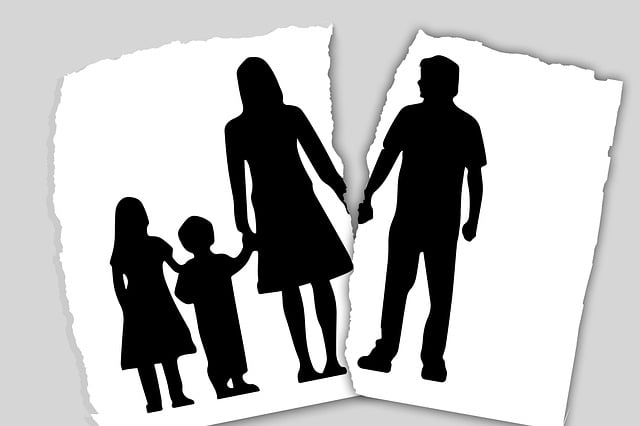No-lawyer divorce mediation offers couples a collaborative, personalized approach to ending their marriage. By using a neutral mediator, spouses maintain control, avoid power imbalances, and foster open communication. This method focuses on joint parenting, asset division tailored to unique needs, and peaceful resolutions for better co-parenting relationships, minimizing legal stress and emotional harm. Increasingly popular, it provides a cost-effective, less adversarial alternative to traditional court divorces.
Divorce can be an emotional rollercoaster, but what if there was a way to stay in control and avoid the drama? No-lawyer divorce mediation offers couples a powerful alternative to traditional legal battles. By working with a neutral mediator, partners can navigate financial negotiations, protect their emotional wellbeing, and achieve peaceful settlements without court intervention. This growing trend is revolutionizing divorces, empowering individuals to create a tailored agreement that reflects their unique needs. Discover the benefits of this transformative process and explore why it’s becoming the preferred choice for many.
- Staying In Control: The Power of No-Lawyer Divorce Mediation
- Neutral Mediator: Facilitating Peaceful Settlement Between Couples
- Court Avoidance: Why Couples Choose Mediation Over Legal Battles
- Financial Negotiations: Achieving Fair Agreements Without Lawyers
- Emotional Wellbeing: The Therapeutic Role of Mediators in Divorce
- Alternative Dispute Resolution: A Growing Trend for Peaceful Divorces
Staying In Control: The Power of No-Lawyer Divorce Mediation

Staying In Control: The Power of No-Lawyer Divorce Mediation
When couples decide to part ways, traditional divorce processes can often lead to power imbalances and emotional turmoil. This is where no-lawyer divorce mediation steps in as a game-changer. By choosing this route, spouses retain complete autonomy over the entire process, allowing them to shape their future together without external influence. The mediator acts as an impartial third party, guiding them through negotiations for a mutually agreeable settlement.
This approach is especially beneficial when couples aspire to maintain joint parenting mediation and share custody guidance responsibly. By avoiding court battles, they can focus on resolving issues like child support, asset division, and time-sharing resolution without the added stress of legal procedures. As a result, couples can navigate their divorce with dignity and preserve a healthier relationship moving forward.
Neutral Mediator: Facilitating Peaceful Settlement Between Couples

In no-lawyer divorce mediation, a neutral mediator plays a pivotal role in facilitating a peaceful settlement between couples. This professional third party is trained to help spouses communicate effectively, explore options, and reach mutually agreeable decisions without the pressure of legal advice or representation. The mediator creates a safe, supportive environment where each partner can voice their needs, fears, and aspirations. By guiding discussions with impartiality, they ensure both sides feel heard and understood, fostering an atmosphere conducive to collaboration rather than confrontation.
Unlike court proceedings that often lead to adversarial outcomes, joint parenting mediation offers a more cooperative approach. Mediators assist couples in navigating complex issues such as asset division, child custody, and visitation planning, providing shared custody guidance tailored to their unique situation. Through this collaborative process, parents can work together to establish a post-divorce lifestyle that prioritizes the well-being and best interests of their children while maintaining joint parenting responsibilities effectively.
Court Avoidance: Why Couples Choose Mediation Over Legal Battles

Couples often opt for no-lawyer divorce mediation to steer clear of the adversarial nature of court proceedings. Legal battles can be emotionally draining and financially taxing, with a significant focus on winning at any cost. This competitive environment often leads to prolonged conflicts, leaving both parties exhausted and potentially damaging their relationship further. Mediation provides an alternative path, allowing partners to maintain control over the decision-making process and the outcome of their divorce.
By choosing this route, couples can work together with a neutral mediator to facilitate open communication and find mutually agreeable solutions for all aspects of their separation, including custody arrangements, asset distribution, and financial support. This collaborative approach encourages empathy and understanding, enabling them to create tailored agreements that meet their unique needs, especially when it comes to custom parenting plans and effective visitation planning help.
Financial Negotiations: Achieving Fair Agreements Without Lawyers

Divorce mediation offers a powerful alternative to traditional legal processes, especially when it comes to financial negotiations. When couples choose no-lawyer divorce mediation, they take charge of their settlement by directly communicating with each other in a safe and supportive environment facilitated by a neutral mediator. This approach allows for more personalized agreements tailored to the unique needs and circumstances of each family.
In this process, the focus shifts from adversarial negotiations to collaborative problem-solving. Couples can discuss and decide on financial matters such as asset division, child support, and spousal maintenance without the pressure of court-mandated decisions. With shared custody guidance and joint parenting mediation, they have the freedom to create custom parenting plans that prioritize their children’s best interests while maintaining control over their own financial future.
Emotional Wellbeing: The Therapeutic Role of Mediators in Divorce

In a no-lawyer divorce mediation setting, emotional wellbeing takes center stage. Mediators act as therapeutic facilitators, helping couples navigate the complexities of their divorce while prioritizing mental health and well-being. This supportive environment encourages open communication, fostering a sense of safety where spouses can express their feelings without fear of judgment. By facilitating honest dialogue, mediators aid in resolving conflicts and making decisions collaboratively, which is particularly beneficial for children involved in the process.
This therapeutic approach to divorce goes beyond legal negotiations, focusing on the couple’s emotional needs. Mediators provide shared custody guidance, enabling parents to create custom parenting plans tailored to their family dynamics. This collaborative process allows for a smoother transition, promoting joint parenting mediation where both parties actively participate in shaping their future and that of their children.
Alternative Dispute Resolution: A Growing Trend for Peaceful Divorces

In recent years, there’s been a noticeable shift towards Alternative Dispute Resolution (ADR) methods for couples going through divorce, especially those opting for a no-lawyer divorce mediation approach. This growing trend is driven by the desire to create a peaceful and collaborative environment for splitting up. Traditional court battles can be stressful, expensive, and time-consuming, often leading to outcomes that leave one or both parties dissatisfied.
No-lawyer divorce mediation offers a more streamlined alternative, enabling couples to retain control over decisions regarding property division, child custody, and support. Skilled mediators act as neutral third parties, facilitating open communication and helping couples navigate complex issues like visitation planning help and joint parenting mediation. This process not only fosters better co-parenting relationships but also provides shared custody guidance, ensuring a smoother transition for both parents and children involved.
